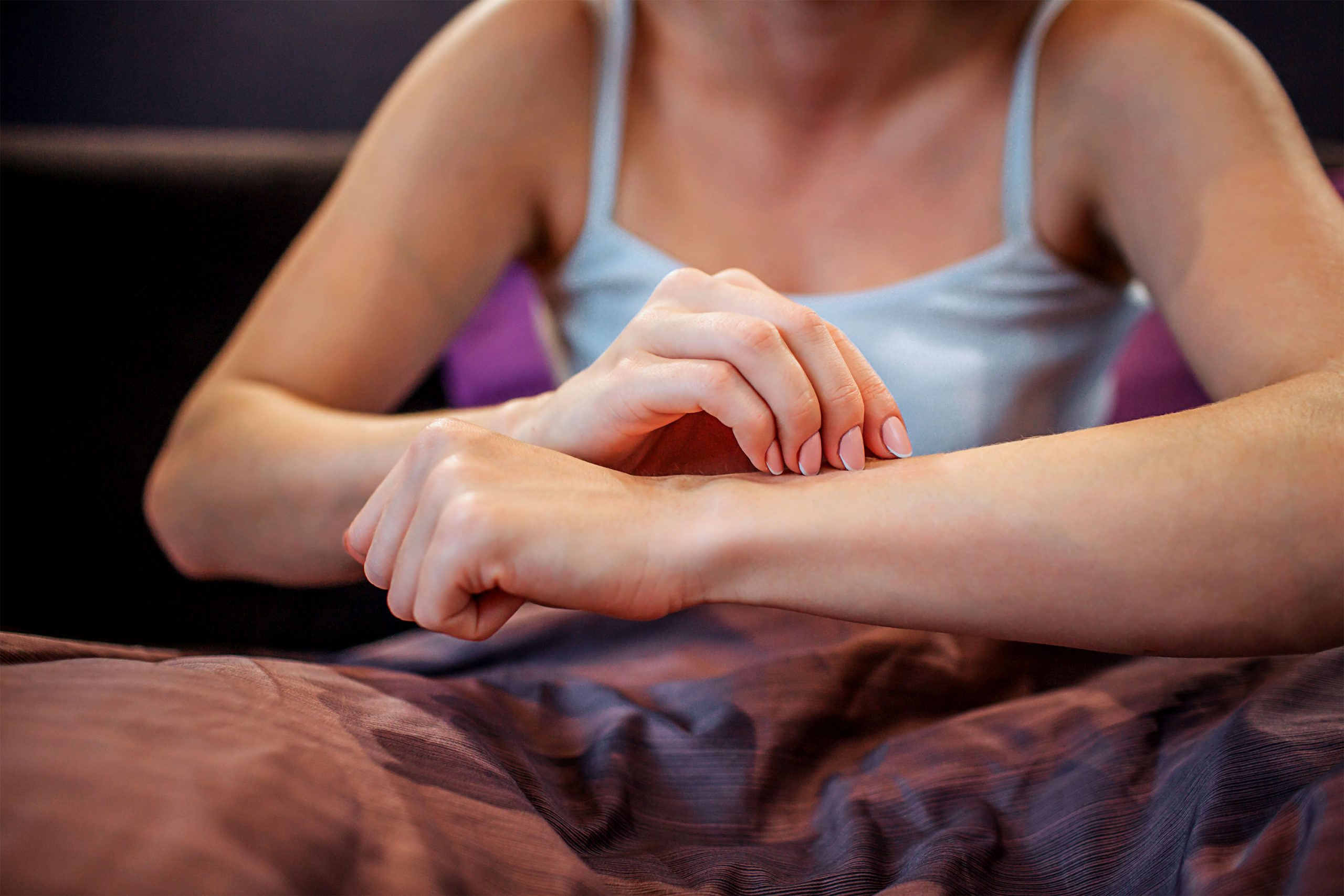- 27 February 2024
- 123
Understanding the Nighttime Itch Cycle: Comprehensive Guide

Introduction
It’s a scenario many of us have experienced: you crawl into bed after a long day, looking forward to a restful night’s sleep, only to find yourself plagued by an incessant itching sensation. This phenomenon, known as the nighttime itch cycle, can be frustrating and disruptive, leaving you tossing and turning in search of relief. In this comprehensive guide, we’ll delve into the intricacies of the nighttime itch cycle, exploring its causes, effects, and most importantly, strategies for managing and minimizing its impact on your sleep and overall well-being. Explore More About (Eye Twitching)
Unraveling the Nighttime Itch Cycle
What Causes the Itch?
The nighttime itch cycle can be attributed to a variety of factors, both internal and external. One common culprit is dry skin, which tends to worsen at night due to decreased humidity levels and increased transepidermal water loss during sleep. Additionally, certain skin conditions such as eczema, psoriasis, and allergic reactions can flare up at night, triggering intense itching sensations.
Understanding the Role of Circadian Rhythms
Our body’s internal clock, or circadian rhythm, also plays a significant role in the nighttime itch cycle. Research suggests that our skin’s barrier function follows a circadian pattern, with increased permeability and susceptibility to irritation occurring during certain times of the day, including nighttime. This can contribute to heightened itchiness and discomfort as we try to settle into sleep.
Psychological Factors
Moreover, psychological factors such as stress, anxiety, and even boredom can exacerbate itching sensations at night. The evening hours often provide a respite from the distractions and demands of daily life, allowing our minds to wander and fixate on discomforts such as itching. This heightened awareness can make the itch feel more intense and persistent.

Managing the Nighttime Itch Cycle
Skincare Routine
One of the most effective ways to combat the nighttime itch cycle is by implementing a targeted skincare routine. This may include:
- Hydration: Keep your skin moisturized by using a rich, emollient moisturizer before bedtime. Look for products containing ingredients such as hyaluronic acid and ceramides to help restore and maintain the skin’s natural barrier function.
- Gentle Cleansing: Opt for mild, fragrance-free cleansers that won’t strip the skin of its natural oils. Avoid hot water, as it can further dry out the skin and exacerbate itching.
- Topical Treatments: For those with specific skin conditions such as eczema or psoriasis, topical treatments such as corticosteroids or calcineurin inhibitors may be prescribed to help alleviate symptoms and reduce itching.
Lifestyle Modifications
In addition to skincare, certain lifestyle modifications can also help manage the nighttime itch cycle:
- Stress Reduction: Incorporate stress-reducing practices such as meditation, deep breathing exercises, or gentle yoga into your nightly routine to promote relaxation and mental well-being.
- Sleep Environment: Create a sleep-friendly environment by ensuring your bedroom is cool, dark, and free from potential allergens such as dust mites and pet dander. Invest in breathable, moisture-wicking bedding materials to help regulate body temperature and minimize sweat-induced itching.
- Dietary Considerations: Some foods and beverages, such as spicy foods, alcohol, and caffeine, can exacerbate itching and inflammation. Consider limiting or avoiding these triggers, especially in the hours leading up to bedtime.

Seeking Professional Help
If the nighttime itch cycle persists despite implementing these strategies, it may be indicative of an underlying medical condition requiring professional evaluation and treatment. Consult with a dermatologist or healthcare provider to rule out potential causes such as allergies, infections, or systemic diseases.
Managing the Nighttime Itch Cycle
| Management Strategy | Description |
|---|---|
| Skincare Routine | Implement a regimen focused on hydration, gentle cleansing, and targeted topical treatments for specific skin conditions. |
| Lifestyle Modifications | Incorporate stress reduction techniques, optimize sleep environment, and consider dietary adjustments to minimize itching triggers. |
| Professional Evaluation | Seek medical evaluation from a dermatologist or healthcare provider to identify underlying causes and explore treatment options. |
Conclusion
In conclusion, the nighttime itch cycle can be a frustrating and disruptive phenomenon, but with the right approach, it is manageable. By understanding the underlying causes and implementing targeted skincare, lifestyle modifications, and seeking professional help when needed, you can effectively minimize itching and reclaim restful nights of sleep. Remember, consistency and patience are key, and with time, you can break free from the grip of the nighttime itch cycle.

